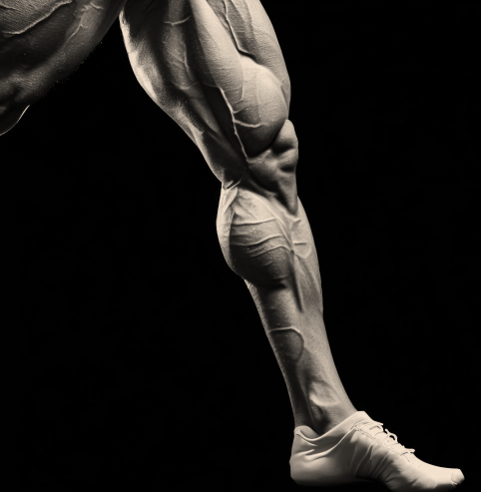Introduction to Vegan Nutrition
Have you ever wondered how vegans maintain strong leg muscles without consuming animal products? The answer lies in understanding vegan nutrition.
Why is Leg Muscle Health Important?
Leg muscles serve as the pillars of our mobility. They bear our weight, facilitate walking, running, and jumping, and are essential for overall health and injury prevention.
The Rise of Veganism
As awareness about animal rights and environmental sustainability grows, more people are embracing veganism. But can a vegan diet truly support optimal leg muscle health? The answer is a resounding yes!
Essential Nutrients for Leg Muscles
To maintain strong leg muscles, certain nutrients are vital.
Protein Sources for Vegans
Contrary to popular belief, vegans have a plethora of protein sources. Lentils, chickpeas, and tofu are just a few examples. It’s essential to focus on both the quantity and quality of protein.
Importance of Omega-3s
Omega-3 fatty acids, abundant in flaxseeds and walnuts, play a crucial role in muscle repair and inflammation reduction.
Role of Calcium and Vitamin D
Calcium, found in fortified plant milk and tofu, is vital for strong bones that support muscles. Combine it with Vitamin D, primarily obtained from sunlight, to maximize absorption.
Vegan Foods for Leg Muscle Strength
Legumes and Beans
These are protein and iron powerhouses, essential for muscle growth and repair.
Nuts and Seeds
Think of almonds, chia seeds, and hemp seeds not just as snacks, but as muscle-building foods.
Whole Grains
Foods like quinoa and brown rice provide the sustained energy needed for leg workouts.
Green Leafy Vegetables
Don’t limit spinach and kale to salads. They’re rich in magnesium, which is essential for muscle function.
The Role of Hydration
Importance of Water for Muscle Health
Muscles are about 70% water. Proper hydration ensures they function optimally and aids in recovery.
Vegan Supplements for Muscle Health
BCAAs and Other Amino Acids
While a balanced vegan diet provides all essential amino acids, athletes might find BCAA supplements beneficial for enhanced recovery.
Iron and B12 Supplements
Vegans should monitor their iron and B12 levels. Supplements can help maintain optimal levels.
Conclusion
A well-planned vegan diet can not only support but also enhance leg muscle health. It’s all about making informed choices and understanding the nutritional benefits of plant-based foods.
FAQs
- Can vegans build muscle mass?
- Absolutely! With proper nutrition and training, vegans can achieve significant muscle growth.
- Do I need to take protein supplements as a vegan?
- While whole foods can provide sufficient protein, those engaging in intensive training might benefit from vegan protein powders.
- Are there vegan sources of Omega-3s?
- Yes, flaxseeds, chia seeds, and walnuts are all excellent sources.
- How do vegans obtain B12?
- Vegans can get B12 from fortified foods and supplements.
- Is a vegan diet anti-inflammatory?
- Many plant-based foods possess anti-inflammatory properties, making a vegan diet beneficial for reducing inflammation.
Explore the wealth of knowledge in our Nutrition & Supplements Archives to grasp the intricacies of diet and its impact on leg muscle development.

